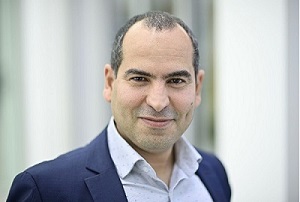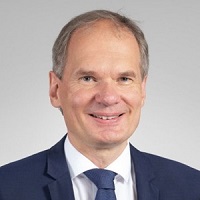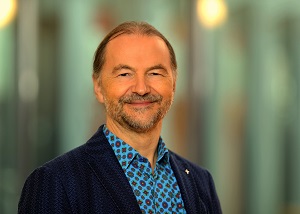
|
|
|
Program > Invited Speakers
Benazouz Bradai - Reasearch & Innovation Director - Master Expert Autonomous Driving at Valeo Towards Autonomous Vehicles : how AI is driving the mobility revolution Abstract: Society is expecting cleaner, safer and smarter mobility. Automotive players are transforming in order to tackle those challenges. At Valeo, we make this happen with affordable, electric and smart mobility solutions. Today, most of the new cars include ADAS “Advanced Driver Assistance Systems” features, some of them even include an Automated Driving of a level 3 of automation according to SAE classification. Valeo was a strong partner and enabler of those world first L3 vehicles. Major advancements in Automated Driving capabilities are still to come where Artificial Intelligence is a key enabler. In this presentation we discuss the ADAS acceleration and the integration of cutting-edge AI technologies with Valeo automotive grade sensors to propel the evolution of autonomous vehicles from parking automation to advanced driving assistance and full autonomy. We will deep dive in few challenges on this evolution:
Finally, we will show the results of all that on Valeo Drive4UⓇ driving on open roads with only Valeo serial production sensors.
Richard Arning - Head of Department at Deutsch-Französisches Forschungsinstitut Saint-Louis AI in the Contemporary and Future Battlefield: Revolutionizing Defense Abstract: As the landscape of warfare rapidly evolves in the digital age, artificial intelligence (AI) stands at the forefront of transformation. In this keynote address at the AI Conference hosted by TrirhenaTech, we delve into the critical topic of "AI in the Contemporary and Future Battlefield." This discussion will illuminate the pivotal role of AI in defense applications and explore cutting-edge research activities in the field, with a special focus on the contributions of the Franco-German Defence Research Institute Saint-Louis (ISL).
Gernot Meier - Lecturer at the HS Offenburg and Member of Institute for Machine Learning and Analytics (Offenburg) You have to ask the right questions! Abstract: "You have to ask the right questions" is a common, but not to be underestimated basic mindset that has played a central role from Aristotle, Isaac Asimov to beyond Michel Foucault. This basic mindset is familiar to many when making important strategic decisions in business. The basic attitude also has a crucial role in ethical discussions related to the digital future and its forecasting. This also from the knowledge that responsible action is always questioning action in the face of a future that can never be fully controlled. Since all forms of forecasting are difficult when they concern the further, however, social and technical actors often take shelter in extreme positions or superlatives. Why might this be? Often the reason is that the problems are approached in an undercomplex way and that a technical solutionism believes that ethical questions can be solved and finalized in principle. Machine ethics, information ethics, robot ethics, algorithms ethics also with all their differences, however, show the following: New technological possibilities give rise to new moral problems. For example, a questioning of the image of man, because digitalization challenges the previous humanistic image of man, or also: Who is responsible for what and why, and is responsibility divisible? Because technology and society are intensively interconnected, especially in the digital field. It is also very interesting here that the responsibility of a scientist or also of companies in the digital field is once again in focus. What will GPT7 say when she has been trained on ethical dilemmas at some point. "I'm sorry, my answers are limited. You need to ask the right questions." That will always remain the tasks of humans.
|




